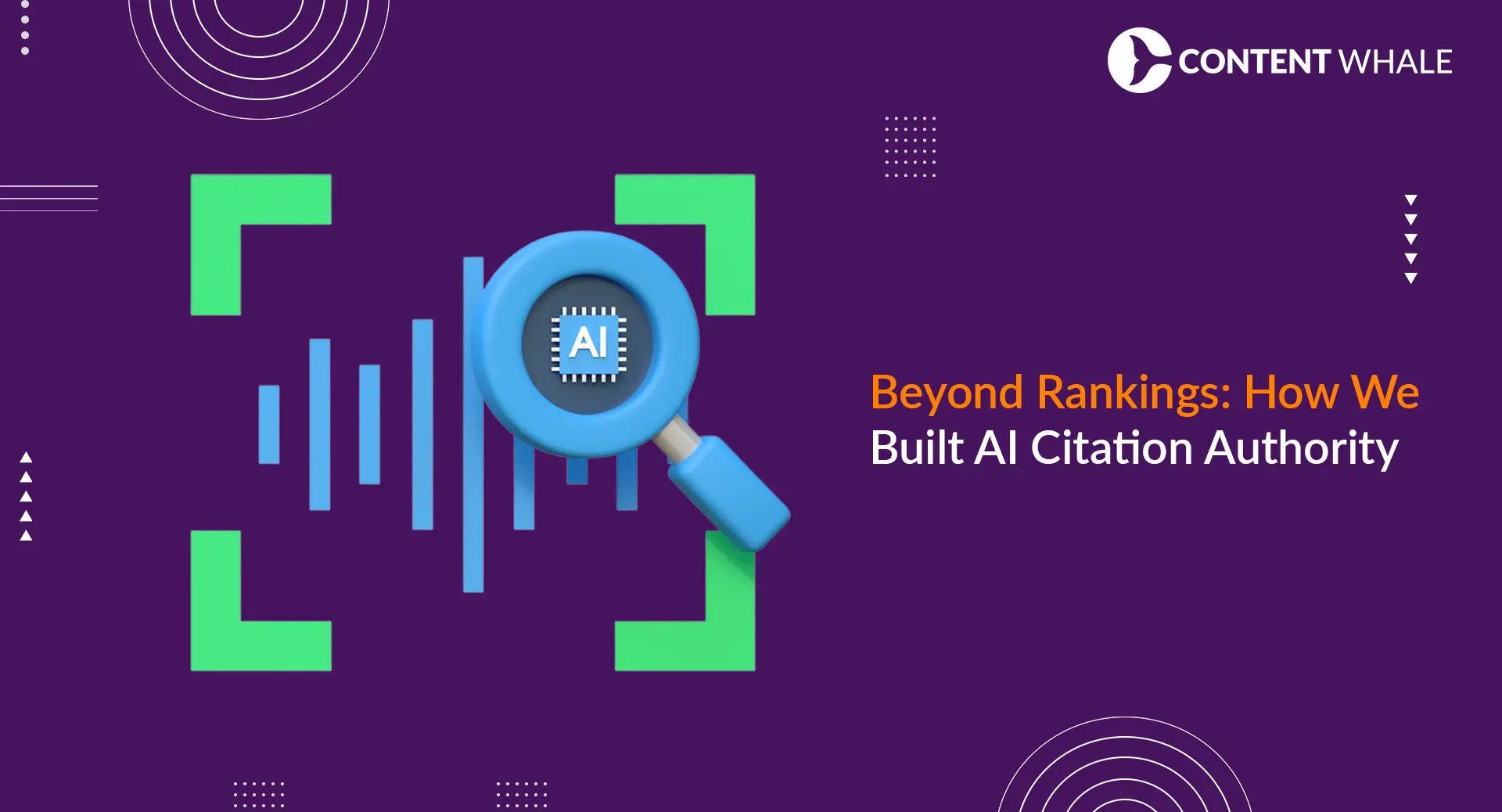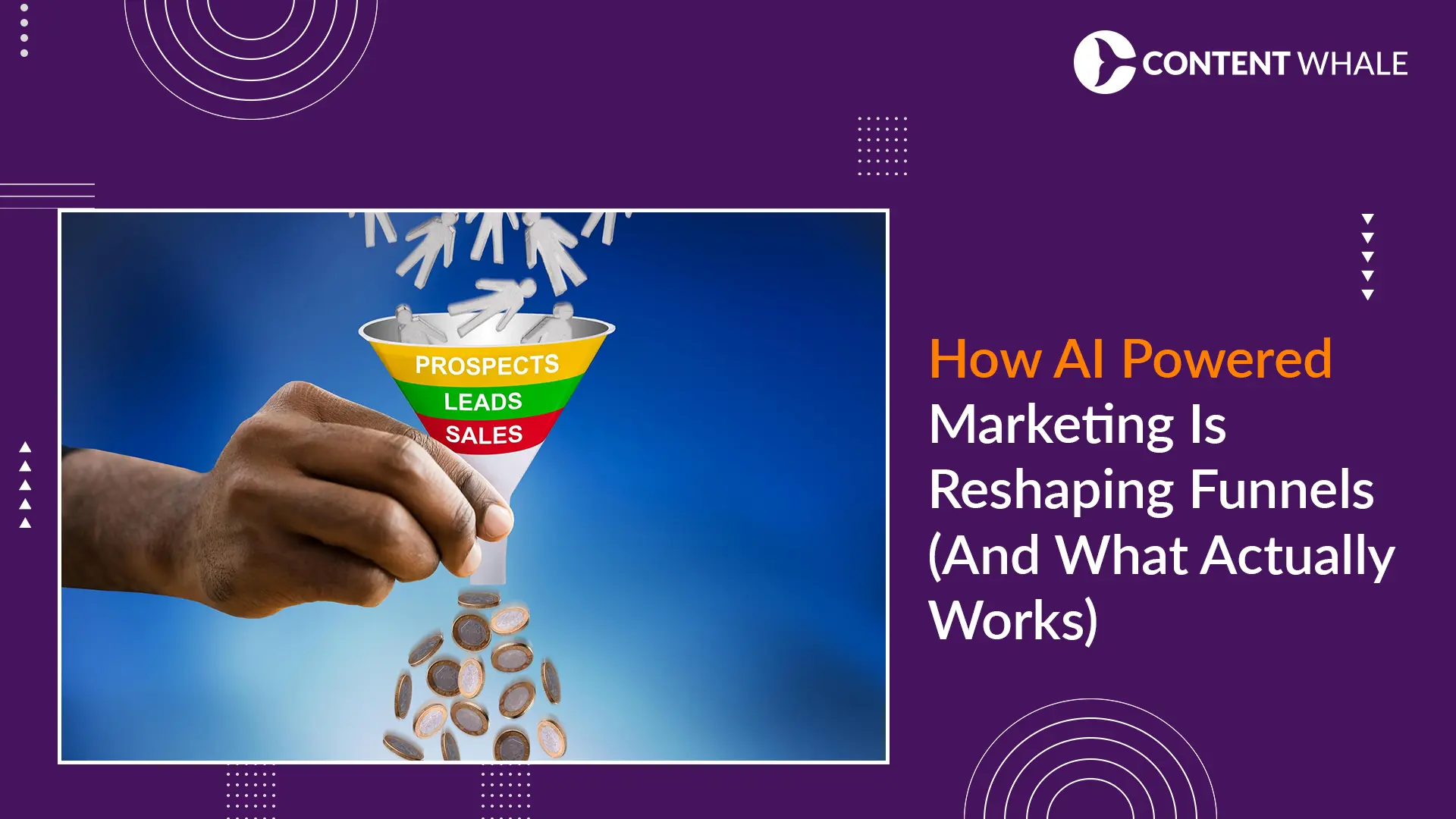Quick Summary
SEO is essential for online success. This article provides 15 SEO tips to boost your website ranking, covering everything from keyword research to staying updated with trends. These tips include using tools like Google Keyword Planner, Ahrefs, and Yoast SEO for effective SEO strategies. Enhancing user experience, optimizing for mobile, and building high-quality backlinks are also key points. Implementing these SEO tips for better ranking can significantly improve website ranking and drive organic traffic. For professional assistance, Content Whale offers comprehensive SEO content services to help you achieve your goals.
SEO is essential for online success. Statistics show that 68% of online experiences begin with a search engine, and organic search is responsible for 53.3% of website traffic. This makes optimizing your website for search engines crucial for attracting the right audience. In this article, we’ll explore 15 essential SEO tips to boost your website ranking.
These tips cover everything from keyword research to content creation, and backlink building to mobile optimization. Implementing these strategies will help improve website ranking by focusing on the key SEO strategies that search engines prioritize. For instance, pages that rank in the top positions on Google receive nearly 28% of all clicks, emphasizing the importance of high rankings.
By following these SEO tips for better ranking, you can enhance your website’s visibility, attract more traffic, and increase conversions. Whether you’re a beginner or an experienced marketer, these insights will help you optimize your site effectively.
1. Conduct Keyword Research

Keyword research is essential for effective SEO. It helps identify the terms your target audience is searching for. Over 94.74% of keywords get 10 monthly searches or fewer, highlighting the importance of targeting the right keywords.
Use tools like Google Keyword Planner and Ahrefs to find relevant keywords with high search volume and low competition. Pages that rank #1 for targeted keywords gain a click-through rate (CTR) of nearly 40%. Focusing on the right keywords will significantly improve website ranking and attract the right visitors to your site.
2. Optimize Title Tags and Meta Descriptions
Title tags and meta descriptions are vital for SEO. They inform search engines and users about your page’s content. Craft compelling, keyword-rich titles and descriptions.
Studies show that 25% of top-ranking pages lack meta descriptions, and Google rewrites 62.78% of meta descriptions for better relevance.
Tools like Yoast SEO can help ensure they are optimized. Well-written tags can enhance your click-through rate (CTR) by up to 40% and contribute to better SEO strategies for improving rankings.
3. Improve Website Load Speed

Website load speed affects both user experience and SEO. A delay of just one second can reduce conversions by 4.42% and increase bounce rates significantly. Use tools like Google PageSpeed Insights to identify and fix speed issues.
Optimize images, leverage browser caching, and minimize CSS and JavaScript files to improve load times. Pages that load in 1-2 seconds have the highest conversion rates, and faster load times can improve search engine rankings and user satisfaction, helping to improve website ranking and overall performance.
4. Create High-Quality Content
High-quality content is key to SEO success. Focus on creating valuable, engaging, and original content that addresses your audience’s needs. Regularly updating and refreshing your content can significantly boost your site’s relevance and ranking.
Statistics show that 72% of marketers consider content relevancy the most effective SEO factor. Moreover, pages with high-quality content receive 3.5 times more backlinks than those without.
Consistent, high-quality content can keep visitors on your site longer, improving your overall SEO performance
5. Use Header Tags Effectively

Header tags (H1, H2, H3) help structure your content and improve readability. They signal the importance of sections to search engines. The H1 tag should include your main keyword and serve as the primary title of the page. Subheadings like H2 and H3 tags break up content into digestible sections, making it easier for users and search engines to navigate.
Statistics show that using header tags can improve user engagement and reduce bounce rates. Properly structured content keeps users on your site longer, signaling to search engines that your content is valuable. Google’s John Mueller emphasizes that header tags provide strong signals about a page’s content, enhancing SEO performance.
Ensure your headers are descriptive and relevant to the content. Include keywords naturally to improve SEO without keyword stuffing. Using headers effectively can also optimize your content for featured snippets, increasing visibility in search results.
6. Optimize Images
Image optimization is crucial for SEO. Compressed images reduce load times and improve user experience, which directly affects SEO rankings. According to research, 47% of consumers expect a web page to load in 2 seconds or less, and 40% will abandon a page that takes longer than 3 seconds to load. Use tools like TinyPNG or ImageOptim to compress your images without losing quality.
Descriptive file names and alt tags help search engines understand your images. For example, renaming an image file from “IMG1234.jpg” to “blue-running-shoes.jpg” makes it more relevant to search queries. Using alt tags like “A pair of blue running shoes” can improve your visibility in image search results.
Additionally, implementing responsive image scaling and lazy loading techniques ensures that images load quickly across all devices, enhancing the overall user experience and potentially boosting your site’s SEO performance
7. Implement Internal Linking

Internal linking is crucial for improving site navigation and SEO. By distributing “link juice,” it helps search engines understand your site’s structure. Strategic internal linking can significantly boost user engagement. Research shows that pages with a well-planned internal linking structure can see up to a 40% increase in time spent on the site.
Internal links should connect relevant pages, providing users with additional content that enhances their experience. Descriptive anchor text is essential, as it tells both users and search engines about the linked page’s content. Avoid using generic phrases like “click here.” Instead, use specific and descriptive anchor text that reflects the linked page’s topic.
Regularly auditing your internal links is important to fix broken links and ensure all pages are easily accessible. This practice not only improves user experience but also aids in better indexing by search engines, ultimately enhancing your site’s overall SEO performance.
8. Build High-Quality Backlinks
Backlinks from authoritative sites significantly boost your site’s credibility and SEO. Research shows that websites with a high number of quality backlinks rank higher in search engine results. To acquire high-quality backlinks, use strategies like guest blogging on reputable sites within your industry. Creating valuable, linkable assets such as comprehensive guides, infographics, or research reports can attract natural backlinks from other sites.
Leveraging tools like HARO (Help a Reporter Out) connects you with journalists seeking expert insights, providing opportunities to earn backlinks from high-authority news sites. Additionally, participating in industry forums, podcasts, and webinars can help build relationships and earn backlinks.
Statistics indicate that the top results on Google have 3.8 times more backlinks than those below them.
Regularly monitoring and analyzing your backlink profile using tools like Ahrefs or SEMrush can help maintain and grow your site’s authority, ultimately improving your website’s ranking and visibility.
9. Use Social Media to Promote Content

Social media can drive traffic and enhance SEO. Sharing your content on platforms like Facebook, Twitter, and LinkedIn increases visibility and attracts backlinks.
A study by OptinMonster found that social media sites drive 31% of all referral traffic. Engaging with your audience by responding to comments and participating in discussions builds a loyal following and improves your rankings.
Content shared on social media can also lead to more inbound links, as users share and link to your content. According to Hootsuite, businesses that use social media to distribute their content are 3 times more likely to see increased traffic than those that don’t.
Regularly posting and promoting your content across various social media channels not only drives immediate traffic but also enhances long-term SEO efforts by improving your site’s authority and relevance in search engine algorithms.
10. Optimize for Mobile
Mobile optimization is essential for SEO. With over 58% of all Google searches coming from mobile devices, ensuring your site is mobile-friendly is critical. Use responsive design to ensure your site looks good on all devices, providing a seamless user experience.
Test your site’s mobile-friendliness with tools like Google’s Mobile-Friendly Test. This test identifies issues that may affect mobile users. Addressing these issues can significantly improve your rankings, as Google prioritizes mobile-friendly sites in its search results.
Research shows that 70% of mobile searches lead to action within an hour, highlighting the importance of a well-optimized mobile site. Regularly reviewing and adjusting your site’s mobile performance ensures that it meets users’ expectations and performs well in search engine rankings.
11. Use Structured Data Markup

Structured data markup helps search engines understand your content better. Implementing schema markup can enhance your site’s appearance in search results with rich snippets, which improves click-through rates and rankings. Studies show that websites with rich snippets achieve a 20-30% higher click-through rate compared to those without .
Schema markup can be applied to various types of content, including articles, reviews, events, and products. This additional information helps search engines provide more relevant results to users, increasing the likelihood of your content being clicked on. Tools like Google’s Structured Data Testing Tool can help you verify the correctness of your markup.
Rich snippets not only make your search listings more attractive but also build trust with users by providing more context before they click through to your site. Regularly updating your structured data ensures your site remains optimized for search engines and user experience.
12. Focus on User Experience
User experience (UX) is closely linked to SEO. Ensuring your site is easy to navigate, visually appealing, and provides valuable content is essential. A positive UX can reduce bounce rates and improve your site’s ranking on search engines. According to a study by Google, 53% of mobile users abandon sites that take longer than 3 seconds to load.
Good UX involves clear navigation, fast load times, and mobile optimization. Websites with intuitive design and engaging content keep visitors longer, which signals search engines that your site is valuable. Additionally, a user-friendly site structure helps search engines crawl and index your content more efficiently.
Incorporating elements like clear call-to-actions, readable fonts, and high-quality images can significantly enhance UX. Regularly testing and optimizing your site’s performance ensures it meets user expectations and maintains high search engine rankings.
13. Regularly Update Content

Fresh content signals to search engines that your site is active and relevant. Regular updates of existing content and adding new posts keep your audience engaged and improve your SEO rankings. Websites that frequently update their content have a 126% higher chance of ranking well compared to those that don’t.
Updating content with current information and relevant keywords can significantly improve your site’s visibility. Regularly publishing new posts also helps attract repeat visitors and build authority in your niche.
Use tools like Google Analytics to identify content that needs refreshing. Consistent updates can lead to better user engagement and higher rankings, contributing to your overall SEO strategies and efforts to improve website ranking.
14. Monitor and Analyze Performance
Analytics tools like Google Analytics help track your SEO performance. Monitoring key metrics like organic traffic, bounce rate, and keyword rankings allows for data-driven decisions to improve your SEO strategy. Regular analysis of these metrics helps identify what works and what needs adjustment.
For instance, if you notice a high bounce rate, it might indicate issues with user experience or content relevance. Tracking keyword rankings shows which SEO strategies are most effective and which keywords need more focus. Websites that use analytics to inform their SEO strategies are more likely to improve their rankings.
Using tools like Google Search Console can also provide insights into your site’s performance, helping you refine your SEO tips to boost your website ranking and continuously improve your SEO strategies. Regular monitoring and analysis are essential for sustained SEO success.
15. Stay Updated with SEO Trends

SEO is constantly evolving. Follow reputable SEO blogs and forums to stay informed about the latest trends and algorithm updates. Keeping up with changes ensures your strategies remain effective and your site stays competitive. According to a survey by HubSpot, 64% of marketers actively invest time in learning SEO updates.
Following sources like Moz, Search Engine Journal, and Google’s Webmaster Central Blog can provide valuable insights. These platforms regularly share updates on algorithm changes, best practices, and new tools. Joining SEO forums and communities like Reddit’s r/SEO or WebmasterWorld can also help you learn from industry experts and peers.
Adapting to SEO changes can significantly improve your site’s ranking. For instance, Google’s BERT update affected 10% of search queries, emphasizing the importance of understanding new algorithms. Staying current with trends and updates is essential for effective SEO strategies and to boost your website ranking

In this article, we’ve covered 15 essential SEO tips to boost your website ranking. From conducting keyword research to staying updated with SEO trends, these strategies are designed to enhance your site’s visibility and engagement. Implementing these SEO strategies can significantly improve website ranking, drive organic traffic, and ensure your site remains competitive.
SEO is a continuous process requiring regular monitoring and adjustments. Tools like Google Analytics and Search Console are invaluable for tracking performance and making data-driven decisions. Fresh, high-quality content and user-friendly design also play a critical role in maintaining high rankings.
Content Whale offers professional SEO content services to help implement these tips effectively. Our experts can guide you through optimizing your site for search engines, ensuring your strategies align with the latest SEO best practices.
Visit our website to learn more about how we can assist you in achieving your SEO goals and improving your website ranking with targeted effective content solutions.
FAQs
Why is SEO important for my website?
SEO increases your website’s visibility in search engine results, driving organic traffic and potential customers to your site.
How often should I update my website content for SEO?
Regular updates, ideally every few months, help maintain relevance and improve website ranking.
What tools can help with keyword research?
Tools like Google Keyword Planner, Ahrefs, and SEMrush are excellent for finding relevant keywords to boost your site’s ranking.
How can Content Whale help improve my website’s SEO?
Content Whale offers expert SEO content services, from keyword research to content creation and optimization.
What are some common SEO mistakes to avoid?
To ensure effective SEO strategies and better ranking, avoid keyword stuffing, neglect mobile optimization, and ignore user experience.





